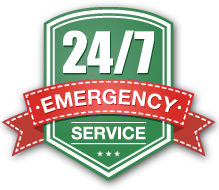In a previous blog we briefly mentioned the ability houseplants had to combat Sick Building Syndrome (SBS), without getting into too much detail on what SBS actually was. Today, we are going to talk about the causes of SBS, the effect it can have on you, and how to best prevent it.
What is SBS?
Essentially, SBS is ascribed to any building whose air quality is so low that it is having a detrimental effect on the health of the buildings inhabitants. The causes of SBS can be attributed to a number of things. Organic compounds such as mold and mildew often lower air quality and can even give off toxic spores. Outgassing of some building material and poor ventilation also contribute to SBS. Improperly functioning HVAC units are also often linked to SBS.
Symptoms and Effects
SBS is extremely dangerous because it can have both psychological and physiological effects. Sensory irritation of the nose, throat and eyes are some of the primary physiological effects. SBS can also elevate the symptoms of asthma and allergies. In rare cases, victims of SBS can be exposed to potentially deadly neurotoxins. The psychological effects often include malaise, depression, and anxiety. Excessive stress and a peculiar sense of dissatisfaction have also been attributed to SBS.
Prevention and Treatment
The best way to combat SBS is to have a modern, powerful, high efficiency HVAC unit installed. An HVAC unit will not only begin to circulate air, it will also regulate temperature and humidity. The EPA also recommends regular vacuuming in homes that are effected by SBS. If there are issues with mold and mildew, they should be addressed immediately. Mildew can usually be removed using standard home cleaning supplies, but mold could be more problematic. If the symptoms of SBS persist, it is best to call a qualified home service professional.



